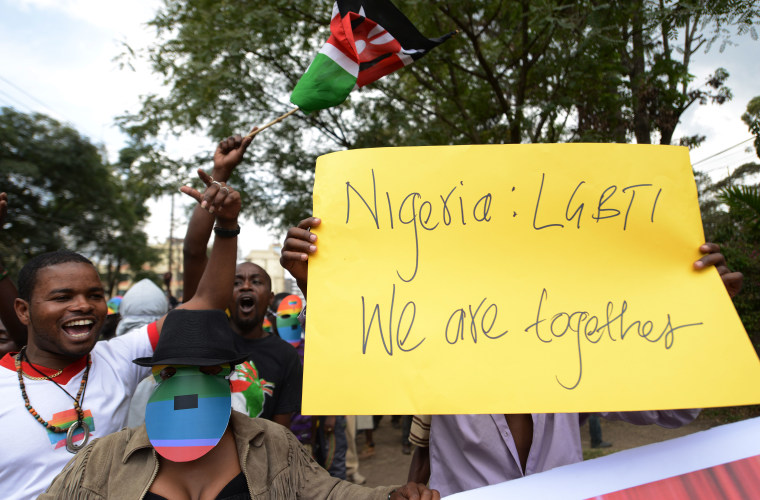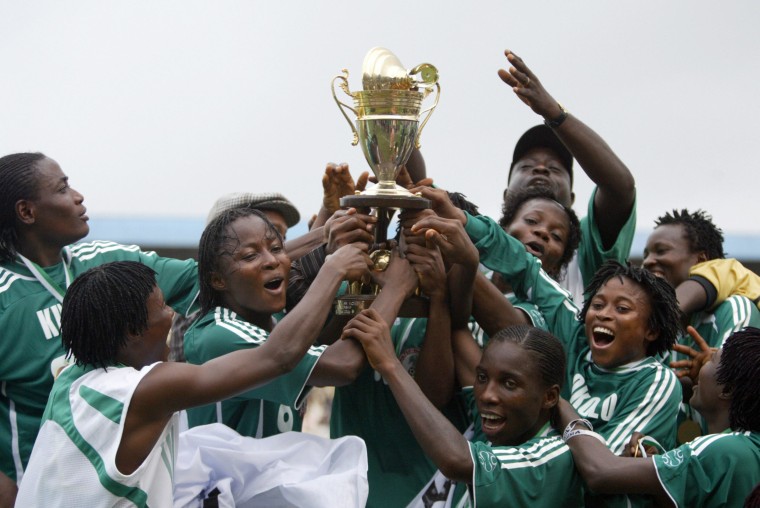DAKAR — Nigerian gay rights activists have condemned a senior soccer official after he said sponsors were reluctant to back women's soccer in the country because of a misconception that female footballers are "synonymous with lesbianism."
Seyi Akinwunmi, the Nigeria Football Federation (NFF) vice-president, blamed lesbians last weekend for the recent decline of the national women's team, according to Nigerian media.
Known as the Super Falcons, the Nigerian women's team are the most successful African nation in women's soccer, but failed to qualify for this year's Olympic Games in Brazil.
Akinwunmi said "lesbianism kills teams" at a meeting of sports writers in Ibadan city, according to the Punch newspaper.
"If businesses are truly afraid of sponsoring the team because they think it's some kind of breeding ground for lesbians, it shows the extent of the homophobia fueled by the 2014 law."
"Many potential sponsors have shied away from supporting the women's game because of the misconception that it is synonymous with lesbianism," he said in a statement on Tuesday to clarify his comments at the meeting in Nigeria's southwestern Oyo state.
Nigeria criminalized same-sex relationships in 2014, making them punishable by up to 14 years in prison in a country where anti-gay sentiment and persecution of homosexuals is rife.
Nigerian lesbian, gay, bisexual and transgender activist Bisi Alimi said Akinwunmi's statement could incite more hatred towards a community that suffered fear and stigma.
"This statement is extremely disgusting and blatantly homophobic," Alimi told the Thomson Reuters Foundation.

"These are young girls in a very macho, masculine society who are trying to make a living, but are being underpaid or not paid on time," he said, adding that there had been other cases of controversy involving soccer and sexuality in recent years.
Soccer's governing body FIFA in 2011 criticized the then Nigeria women's coach Eucharia Uche for calling homosexuality 'dirty' and admitting that she forced lesbians out of her team.
Three years ago, FIFA wrote to the NFF over reports that lesbians had been banned from playing soccer in the country.
"If businesses are truly afraid of sponsoring the team because they think it's some kind of breeding ground for lesbians, it shows the extent of the homophobia fueled by the 2014 law," said Pamela Adie of the LGBT rights group All Out.
"This law does not only impact sport, but the development of Nigeria in general," the Nigerian activist added.
Akinwunmi was not immediately available for further comment.
